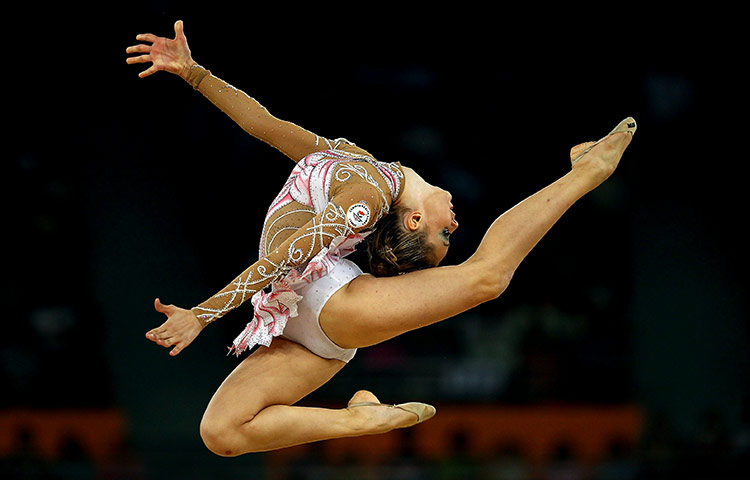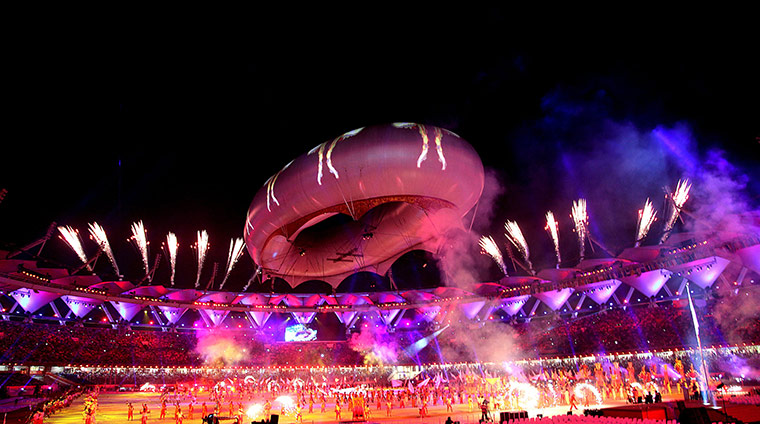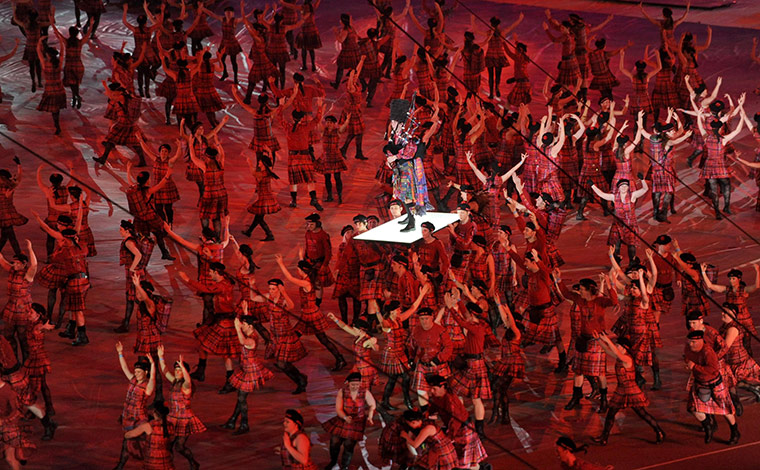I have very low expectation for them, but they did produce a decent games
India Games Fall Shy of Goals
Organizers Overcome Early Problems, but Nation's Global Image Still Suffers
NEW DELHI—India exceeded the world's low expectations for the Commonwealth Games after a chaotic run-up to the athletic event, but the organizers fell far short of their goals of showcasing the nation's progress and burnishing its global image.
Games Closing Ceremony Highlights My Commonwealth Games: Then and Now Complete Coverage: Commonwealth Games The Games, which brought together 71 nations and territories including Britain and its former colonies, wrapped up Thursday evening with a closing ceremony that dazzled the capacity crowd of 60,000 at New Delhi's Jawaharlal Nehru Stadium. It featured big-name pop musicians, martial artists and thousands of dancers.
The show capped 11 days of relatively incident-free sporting action, a huge relief to the nation after India's tardy and lackluster preparations. The worst fears of foreign sports officials in the days leading up to the start—that venues wouldn't be fully ready for competitions or that countries would withdraw over concerns about hygiene and health—weren't realized. The Games went ahead, and there were great moments.
But they didn't come close to achieving the lofty ambitions India set when it won the rights to host them in 2003. The event was supposed to be a moment to show off the country's rising economic stature, share its culture with the world, and shatter the notion that India is a place where big-ticket infrastructure projects run way behind schedule. It was also an audition if India one day bids to host the Olympics.
Instead, the first impression India made with the Games was widely viewed as humiliating. The country needed an 11th-hour push to finish major sporting venues and then clean up the filthy apartments some athletes and foreign officials found when they arrived late last month. Competitions proceeded on schedule, but there were continued logistical problems. A ticketing debacle led to a shortage of spectators in many venues even when they were officially listed as sold out.
Some big-name athletes who planned their tournament schedules months in advance chose not to come to New Delhi, reducing the level of competition in events ranging from track to tennis. The influx of foreign tourists that India expected to take in Delhi's sites and sounds—centuries-old monuments, restaurants and concerts by Bollywood singers—never really materialized because of all the bad publicity ahead of the event.
"They got their act together at the last minute, but that's no good," said Abhimanyu Bhandari, an Indian lawyer who advises multinational companies on corporate transactions. "It's still caused deep embarrassment to the nation."
Mike Fennell, president of the U.K.-based Commonwealth Games Federation, which oversees host country arrangements, was a loud critic of India's poor preparations for the Games before they started, but struck a more positive note Thursday, saying New Delhi had done better than expected in some areas, especially security, even as foreign officials hadmid complaints about housing, transportation and other issues.
"People have had to deal with issues, there's no denying that, but the end result has been good," Mr. Fennell said at a news conference.
After the Games' spectacular opening ceremony on Oct. 3, many Indians began rallying to support them. After all the negative publicity India got internationally, "Indians wanted to take revenge on the world—and say, 'How can you say all these bad things about our country?' " said Suvrangsu Mukherjee, head of India operations for sports marketing firm Total Sports Asia.
Indians rejoiced as they watched their countrymen win 38 gold medals, second only to Australia, with victories in shooting, wrestling, badminton, boxing, and their first Commonwealth Games medal in gymnastics, a bronze in the men's floor exercise. It was an impressive performance given what many athletes say is the country's meager financial and organizational support for sports.
Some Delhi locals who attended events said they were happy the Games left behind new infrastructure in the city, including a metro train with many more stations than before, a brand-new airport terminal, and several totally new sporting venues that were built very late, but at a high quality.
"This is wonderful for the citizens of Delhi, because all these facilities will be here for the long term," said Alka Garg, a physics professor at Delhi University.
Still, many Indians are furious at the Games organizers, including Organizing Committee Chairman Suresh Kalmadi, for the hit India's image took globally, and want to see top officials held accountable. Mr. Kalmadi on Thursday maintained the same optimistic, even defiant, tone he has had for several weeks.
"We faced up to the challenges," he said. "My senior management delivered a great Games."
Some athletes and foreign officials complained of health problems along the way—8% of England's team had a stomach bug at one point or another—and of being more or less locked into the Games Village, because of difficulties finding good transportation and security concerns. Others were happy with the accommodations New Delhi made and praised the country's warm hospitality.

























































